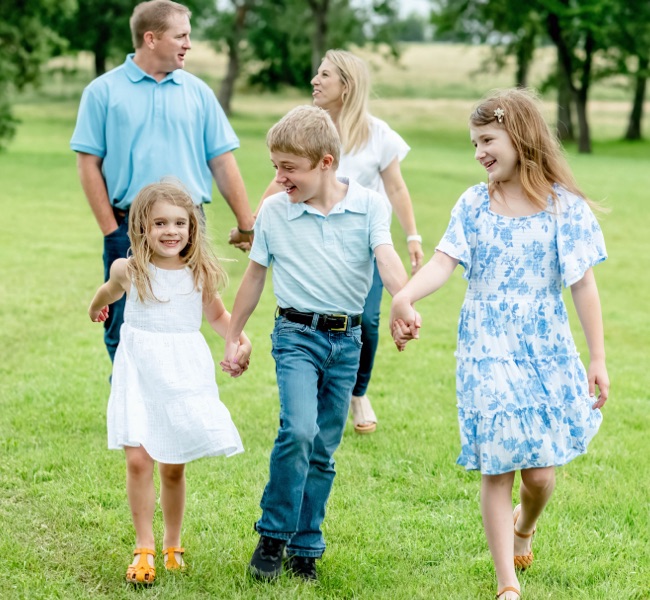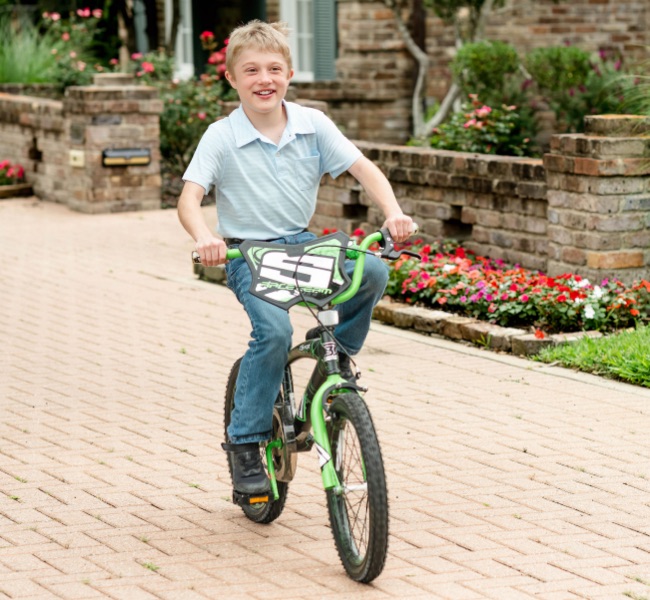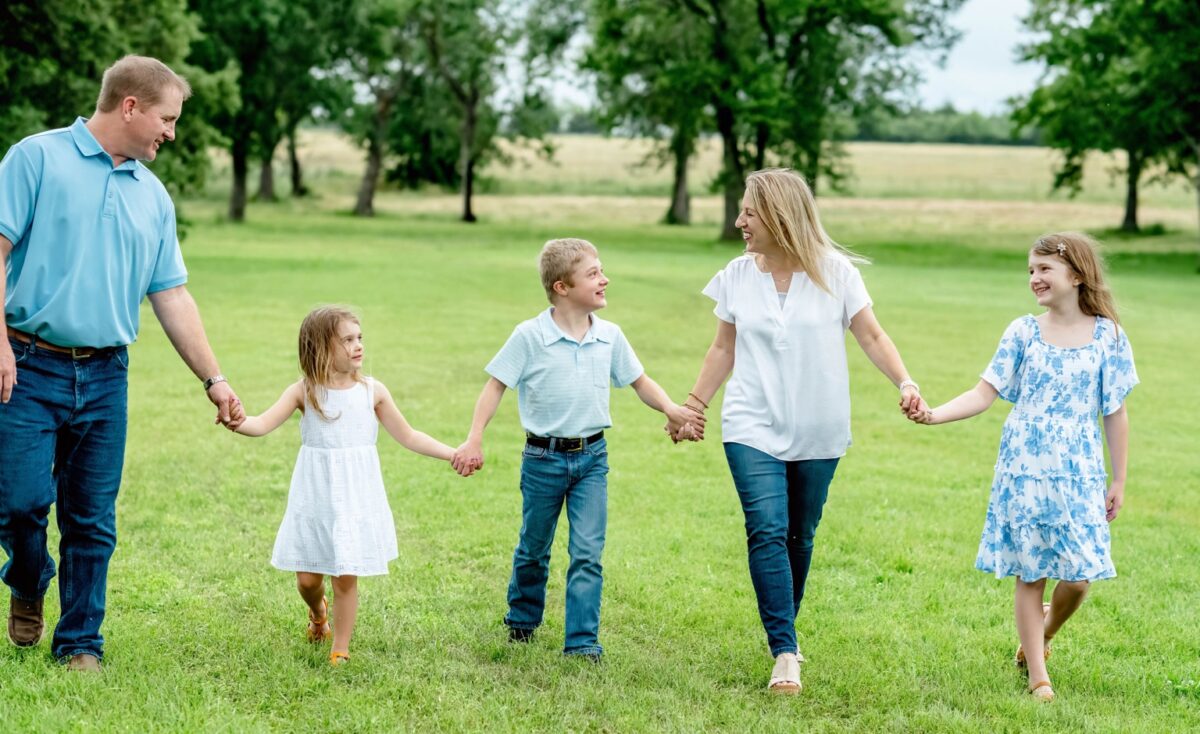Lee is the oldest of three children and has grown up in Texas with a pretty active childhood and loving parents. But, at a routine 7-year-old check up with Lee’s pediatrician, their doctor noticed that Lee’s ankles would not rotate like his younger sister’s. In a sudden whirlwind, Lee’s pediatrician referred him to a neurologist who would soon suggest he had muscular dystrophy. Before Lee’s parents could begin to process their emotions, their doctor delivered a heart- wrenching and bleak outlook. A few weeks later, a blood test officially confirmed Lee had Duchenne muscular dystrophy (DMD). With hardly any explanation and limited knowledge about Duchenne, Lee’s parents immediately felt overwhelmed and discouraged as they tried to make sense of their new reality.
There was no advice for clinical trials, no explanation of the difference between Duchenne and Becker, and no discussion that the trajectory for each patient is different. We got nothing.
Lee’s mother, Ginne, was quick to jump into researching Duchenne. Ginne has always been a go-getter, and facing Lee’s diagnosis was no different. She spent countless hours searching for possible treatment options for Duchenne. Her research led her to advocacy websites, Facebook groups, pharmaceutical and biotech websites, and upcoming clinical trials. Sorting through information was by no means an easy task, but the more Ginne learned about Duchenne, the more she felt empowered to advocate for Lee’s management and treatment plan, although, the journey was not without roadblocks. With limited treatment options for her son, Ginne found a clinical trial opportunity she felt offered hope for Lee’s condition. However, as their family began to regain hope, they were again disheartened to learn that part of Lee’s condition excluded him from the clinical trial.
Thankfully, Ginne has found a community of hope and support in Duchenne advocacy and online groups. Not only has she connected with other Duchenne parents, but the community has also bonded over sharing updates on exciting new research and upcoming patient treatment options. For Ginne, the support groups are a place of therapy, friendship, and hope.

Duchenne is a marathon, so having support groups to lean on and hope for future treatments is essential.
At only 11 years old, Lee has so much to manage on a day-to-day basis. Each morning before school, he takes cocktails of different medications to manage the physical and emotional symptoms of Duchenne. In the afternoon, he has a physical therapy session to stretch his muscles twice a week. In the evening, he puts on ankle-foot orthotics (AFOs) to sleep in and receives an additional medication injection. On top of his daily care, he also visits an out-of-state neurologist every six months, in addition to several other specialists, including a pulmonologist, cardiologist, and endocrinologist.
Lee has had more blood draws than any eleven-year-old I know. He also completes a cardiac MRI every year, which is no easy task for anyone.
On top of the many physical challenges of living with Duchenne, Lee faces the typical challenges of being an 11-year-old boy. As Lee gets older, he struggles to keep up in height with his peers. Although steroids are important in managing Lee’s condition, they also limit his height. Mentally, this is very difficult for Lee as his friends and classmates start to hit their growth spurts. At the same time, he struggles to run as fast as other kids his age and keep up with his friends during recess.

Yet, despite Lee’s frustrations, he remains incredibly brave and still finds time for his favorite activities. Lee loves to play outside, just like most other kids. He enjoys participating on the school’s golf team. Another favorite pastime for Lee is recreational swimming. At night, he calls his friends to compete in video games like Roblox. Ginne tries to do as much as she can to keep Lee’s life as comfortable and normal as possible – he even learned to ride a bike which is an important victory for a child battling Duchenne.
He continues to amaze me every day with his strength to push through challenges no child should have to deal with.
Today, Ginne encourages other caregivers to avoid getting caught up in historical disease projections. While a diagnosis is undeniably frightening, no boy will have the same experience as another, and there is a broad spectrum of experiences. In addition, there is so much to be hopeful for as clinical trials open and potential treatment options expand.
I hope Lee gets into a clinical trial. I hope he produces dystrophin. I hope he can lower his steroid dosage. I hope he runs across the stage at graduation. I hope his generation of boys will have a brighter outlook in the face of Duchenne.

